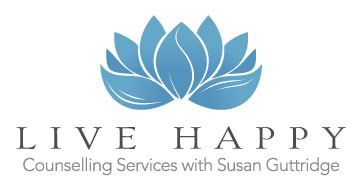 2022 Update: Now on Audio! (Click Here to Access) I have so much praise for The Whole-Brain Child, written by Daniel Siegel and Tina Bryson. The book explains brain growth and brain functioning in children, and ways parents can interact during difficult moments based on understanding neurobiology. There is minimal psychological jargon, and even includes strategies for parents to teach their children about their growing brains! Something that stood out for me near the beginning of the book, was Siegel’s explanation of mental wellness and unwellness. Please note: my overview pales in comparison to the explanation provided by Siegel – this book is worth the read! In order to explain these concepts, Siegel uses the analogy of paddling down a river in a canoe. Imagine, just paddling down the river in a canoe. As you stay in the center of the river, the waters are calm. However, toward each river bank, the waters become choppy. To one side of the river, the river bank represents chaos. To the other, rigidity. Floating down the center of the river represents mental wellness. Yet, in everyone’s life, there are times when our canoe floats towards the river banks. If your canoe were to float to close to chaos, you would feel out of control, confused, and in constant chaos and turmoil. If you float too close to rigidity, you would begin to impose control on everything and everyone around you. On the bank of rigidity, people become unwilling to adapt, unwilling to compromise, and unwilling to negotiate. Our thinking can be flexible and adaptable, and our emotions accurate for the situation when we are in center of the river. Siegel goes on to describe the analogy in much more detail, explaining how all mental illnesses can fit into either the bank of chaos or the bank or rigidity. Imagine how you could use the canoe analogy in your life. For example, after a hard day of work, likely feeling emotionally drained and stressed out – start noticing which shore your canoe is veering toward. Do you tend to float more toward chaos, or rigidity? When under stress, if you veer more toward chaos, you might experience a sense of losing control, or helplessness. You might experience yourself cycling through many strong emotions, such as anger, sadness, and anxiety. You may even catch yourself yelling, whining, or on the brink of tears. When under stress, if your canoe floats more toward rigidity, you might experiencing yourself as the task master, acting in a demanding manner and trying to control everything and everyone around you. When they don’t comply, the resulting behaviour might be anger, or anxiety. Using the image of the canoe, notice when your canoe is getting off track and visualize steering yourself back to centre. Be gentle with yourself and use positive words to self, such as “I choose to keep my canoe in the center”. And when it starts to go sideways (as things often do!), take a break: try taking a moment to breathe, and to visualize your canoe moving back to center. It’s a powerful image – and I am grateful once again to Daniel Siegel for his powerful contributions to brain-based parenting. Listen to the Guided Audio on Insight Timer: Navigating your River of Well-being Reference: The Whole-Brain Child: 12 Revolutionary Strategies to Nurture your Child’s Developing Mind. By Daniel Siegel and Tina Bryson. This article was originally posted on September 7, 2013, to Happy Parents = Happy Kids (focusedonparenting.wordpress.com) by Susan Guttridge
0 Comments
|
AuthorSusan Guttridge is a trauma-informed Master level Counsellor with the clinical designation of Canadian Certified Counsellor (CCPA). She has 20+ years experience providing individual and group therapy. Archives
January 2024
Categories
All
|

 RSS Feed
RSS Feed